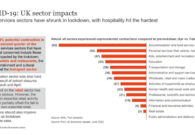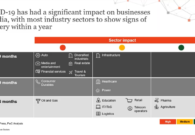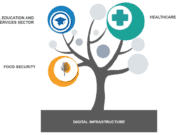COVID-19 might impact business forever: Focus on India’s BPO sector
It’s fair to say that the effects of COVID-19 will change the face of business forever, whether that is more people working from home, businesses taking a greater view of the geographical risks of their supply chains, or investment in digital technology.
This presents India with an opportunity to supercharge the Make In India brand to help some of the global manufacturing superpowers rebalance their reliance on China, as it does for other countries around the world. However, this is a double-edged sword.
News coming out of India initially after the lockdown was that IT and BPO workers were not being allowed into their offices to fulfil the much needed and vital work of supporting many of the online and financial systems we have all become so heavily dependent on. Thankfully this has now been resolved albeit the corporate memory will remain!
As you might expect in such a tech savvy nation as India, investment in automation has been taking place for more than a decade to help India get ahead of the global automation curve. Consequently, the sector has grown from $14bn in 2011 to double that in 2018. India now has around 36% of the global share of BPOs – worth an estimated $28bn to India and expected to grow to $54b by 2025. Yet, employment levels have only increased by 50%. These figures have positive implications and issues to consider. That is, on the one hand demonstration of the increasing nature of automation and AI in India and 1.2 million more people employed, and on the other, a reminder of the importance to ensure that Indians are equipped with the skills to take part in the increasingly automated economy.
At a recent conference, I was told how Unilever use AI to assess 250,000 applications for its graduate programme. AI not only sifts the initial applicants but also assesses their appetite to risk and other key business essentials before finally calling each application for an interview! Not only is the AI able to do multiple interviews at the same time but it can also give all applicants a detailed report about why they have or have not been chosen to progress to the human interaction section.
So what does all this have to do with current situation? Business Process Outsourcing in India is still reliant on 1.2m people and whilst some of them have been able to work from home family dynamics do not make this ideal! Post COVID-19, all international businesses utilising the expertise of India`s BPOs will have to start to factor geographical and human risk into projects in a much more sophisticated way. India`s USP is its young, skilled and relatively cheap (in comparison to say the west) workforce. However growing wage inflation and additional risk weightings start to make investing in technology in your home country, in particular AI, more appealing. Take accounting for instance, £7,000 can buy you an AI bot to automate a simple accounting function such as bank reconciliation. The bot works 24 hours a day, 365 days a year and is 100% efficient, effectively making it the equivalent of 10 full-time manual staff.
Accordingly, India must develop its BPO sector beyond this transitional period. As digital technology improves around the world, bringing other countries into the mix, India must ensure its crop of talent continue to lead on skills and productivity for example.
The impact of COVID-19 and the changing ways of working could affect India`s dominance in the BPO sector, with huge implications. Therefore, more than ever, the decisions the Indian government makes over the next few weeks have the potential to impact the entire Indian BPO services and therefore considerable thought is needed to the consequences of any new policy decisions.
UKIBC will continue to monitor these decisions through our government networks at the state and national level and advocate for reform on behalf of our members. For more information on India’s BPO sector or UKIBC’s advocacy proposition, contact Chris Heyes at chris.heyes@ukibc.com

 By christopher heyes
By christopher heyes 




